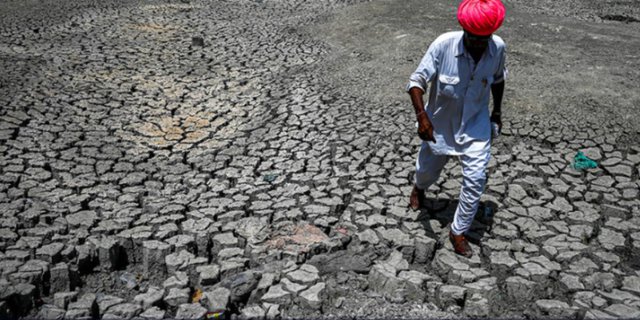Dream - The latest analysis by climate scientists suggests that the global temperature in July 2023 was above the monthly average temperature.
The projected temperature range for July 2023 is estimated to be 1.3 to 1.7 degrees Celsius and will set a new global temperature record.
This estimate is hotter than the previous record in July 2019. The global temperature increase this year reached 0.2 degrees Celsius.
Meaning, the average global temperature in July 2023 is estimated to reach 1.5 degrees Celsius.
However, this significant increase does not mean that the global temperature limitation program in the Paris Agreement has failed.
The problem is that the average global temperature is measured over a long-term time scale.
The increase in temperature in July 2023, which is at its maximum level, indicates that the actions to reduce emissions are still insufficient.
In addition, the world is likely to fail in enforcing the agreements outlined in the Paris Agreement.
Previously, several climate scientists have warned that July 2023 is likely to be the hottest month in history.
Dr. Karsten Haustein, a climate scientist from the University of Leipzig, Germany, was the first to confirm this and estimate the average temperature.
Based on Dr. Karsten's initial data, including temperature forecasts until the end of the month, it is almost certain that July 2023 will be the hottest July on record.
Dr. Karsten mentioned that there is a wide difference of -0.2 degrees Celsius (+/-0.1 degrees Celsius) above the previous temperature record.
"It will not only be the hottest July, but also the hottest month ever in terms of absolute global average temperature.
"We may have to go back thousands or even tens of thousands of years to find similar warm conditions on our planet," explained Dr. Karsten.
Disclaimer: This translation from Bahasa Indonesia to English has been generated by Artificial Intelligence.












